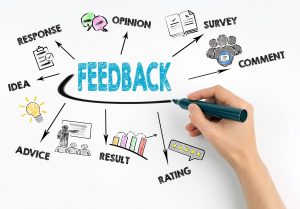Listening is so important that many top employers provide listening skills training for their employees. This is not surprising when you consider that good listening skills can lead to: better customer satisfaction, greater productivity with fewer mistakes, increased sharing of information that in turn can lead to more creative and innovative work. Many successful leaders and entrepreneurs credit their success to effective listening skills.
Good listening isn’t something that we should limit to authority figures. It’s something you can do with everyone you encounter: your friends, your family, significant others, new people in your life – and even yourself. Effective listening offers you many benefits, and encourages the speaker to feel valued as well.
 Listening vs. Hearing
Listening vs. Hearing
“When you are listening to somebody, completely, attentively, then you are listening not only to the words, but also to the feeling of what is being conveyed, to the whole of it, not part of it.”
Here’s 10 steps to improve your listening skills.
- Stop Talking – Don’t talk, listen. When somebody else is talking listen to what they are saying, do not interrupt, talk over them or finish their sentences for them. Stop, just listen. When the other person has finished talking you may need to clarify to ensure you have received their message accurately.
- Prepare Yourself to Listen – Relax. Focus on the speaker. Put other things out of mind. The human mind is easily distracted by other thoughts – what’s for lunch, what time do I need to leave to catch my bus, is it going to rain – try to put other thoughts out of mind and concentrate on the messages that are being communicated.
- Put the Speaker at Ease – Help the speaker to feel free to speak. Remember their needs and concerns. Nod or use other gestures or words to encourage them to continue. Maintain eye contact but don’t stare – show you are listening and understanding what is being said.
- Remove Distractions – Focus on what is being said. Don’t doodle, shuffle papers, look out the window, pick your fingernails or similar. Avoid unnecessary interruptions. These behaviours disrupt the listening process and send messages to the speaker that you are bored or distracted.
- Empathise – Try to understand the other person’s point of view. Look at issues from their perspective. Let go of preconceived ideas. By having an open mind we can fully empathise with the speaker. If the speaker says something that you disagree with then wait and construct an argument to counter what is said but keep an open mind to the views and opinions of others.
- Be Patient – A pause, even a long pause, does not necessarily mean that the speaker has finished. Be patient and let the speaker continue in their own time, sometimes it takes time to formulate what to say and how to say it. Never interrupt or finish a sentence for someone.
- Avoid Personal Prejudice – Try to be impartial. Don’t become irritated and don’t let the person’s habits or mannerisms distract you from what the speaker is really saying. Everybody has a different way of speaking – some people are for example more nervous or shy than others, some have regional accents or make excessive arm movements, some people like to pace whilst talking – others like to sit still. Focus on what is being said and try to ignore styles of delivery.
- Listen to the Tone – Volume and tone both add to what someone is saying. A good speaker will use both volume and tone to their advantage to keep an audience attentive; everybody will use pitch, tone and volume of voice in certain situations – let these help you to understand the emphasis of what is being said.
- Listen for Ideas – Not Just Words – You need to get the whole picture, not just isolated bits and pieces. Maybe one of the most difficult aspects of listening is the ability to link together pieces of information to reveal the ideas of others. With proper concentration, letting go of distractions, and focus this becomes easier.
- Wait and Watch for Non Verbal Communication – Gestures, facial expressions, and eye-movements can all be important. We don’t just listen with our ears but also with our eyes – watch and pick up the additional information being transmitted via non-verbal communication.

